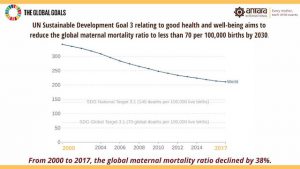

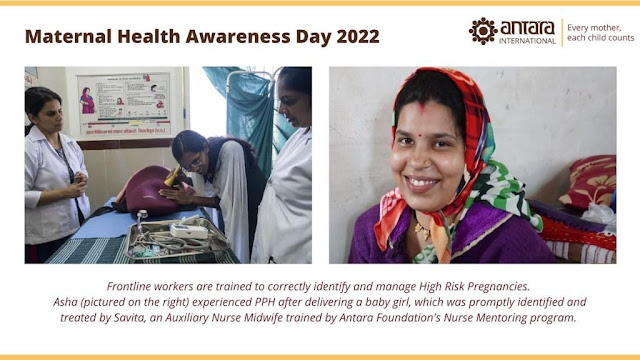 Maternal Health Awareness Day
Maternal Health Awareness DayThe American College of Obstetricians and Gynecologists observes January 23rd as Maternal Health Awareness Day. In the US alone, over 60% of maternal deaths are preventable. The theme for this year’s Maternal Health Awareness Day 2022 was Adding Up to Maternal Health – highlighting the countless factors that can work together to improve maternal health.
Through this visual series, we build awareness on maternal health and spotlight the factors that add up to improve maternal health – from prevention and identification of high risk pregnancies, to labor room management and postpartum care.
1. Prevention and early action for improved outcomes
Iron deficiency is one of the most common problems that particularly affects pregnant women. Left untreated, it can lead to anemia, reduced birth weights and reduced gestation periods. Early protection and prevention can drastically improve maternal health outcomes, and the Antara Foundation trains frontline workers with essential skills to identify and manage iron deficiency in a timely manner.
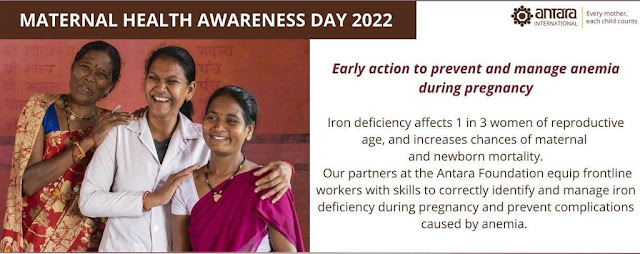
2. Training frontline health workers on important MNCHN themes
We also train frontline health workers to identify and manage High Risk Pregnancies (HRP), where there is a higher chance of health problems for the mother or her baby. Frontline health workers are trained to look for HRP risk factors like high blood pressure or anemia, patient’s history, age, and to prioritize care and services. Comprehensive training in-classroom and in-the-field builds the knowledge and skills of frontline workers on essential maternal, newborn, child health and nutrition (MNCHN) themes.
The capacity building program in Chhindwara District in Madhya Pradesh, India saw 40%+ improved knowledge scores for identification and management of high risk pregnancy over 2019-21.

3. Continuous quality improvement for patient safety
The continuous improvement of healthcare quality at delivery points is another factor that significantly improves maternal health outcomes. Our Nurse Mentoring and Facility Enhancement programs help train birthing nurses and enhance labor room facilities, to ensure safe deliveries for mothers in rural India. The training covers essential childbirth procedures, including various labor room protocols, and is delivered through innovative teaching methods (e.g., simulation-based tools, virtual knowledge sharing). Practical hand holding and regular refreshers reinforce learning.
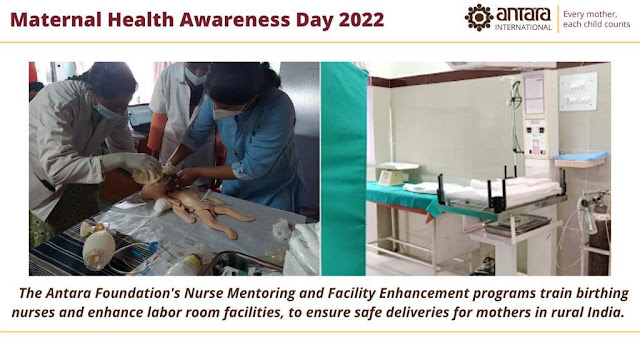
4. Impact story of our nurse mentoring program
Meet Radha, a Nurse Mentor at the Antara Foundation, and learn about the impact of our Nurse Mentoring program in reducing maternal deaths. She trains midwives and frontline health workers, supporting them to build skills and confidence to handle complications during childbirth.
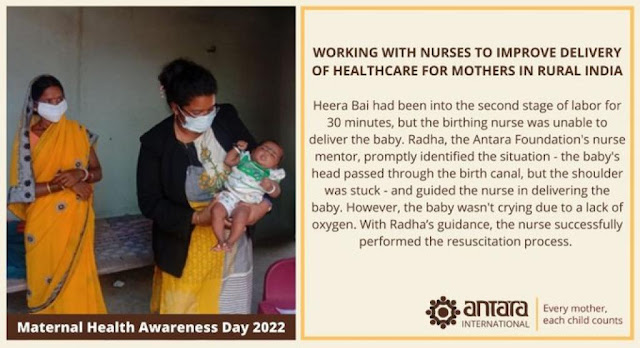
5. Our impact in numbers: improving Rajasthan’s Maternal health
Our interventions in Rajasthan, India have had a significant impact in improving the state’s maternal health. They have been scaled across all 46,000 villages in the state by the government, impacting the lives of many mothers and children. Our current program in Madhya Pradesh is on track to have similar strong outcomes in the state.
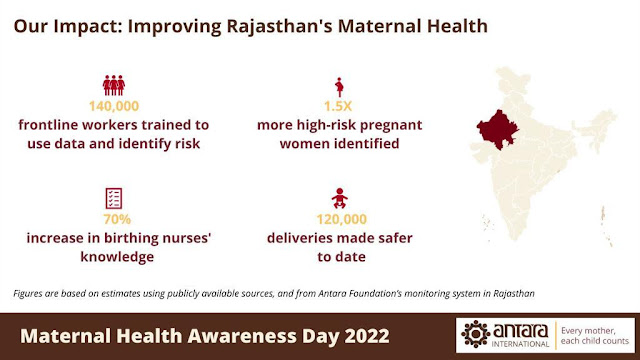
6. The global maternal health crisis
To highlight the urgency of the world’s maternal mortality crisis, we focus on global maternal mortality rates. Although maternal mortality rates (MMRs) are high across the world, inequalities in availability and access to quality healthcare contribute to significantly higher MMRs in lower and middle income countries as compared to the rest of the world. Most maternal deaths are preventable, as solutions to prevent or manage complications are well-known. Our goal is to make these solutions accessible to the most marginalized women in rural India, and deliver them at a large scale.
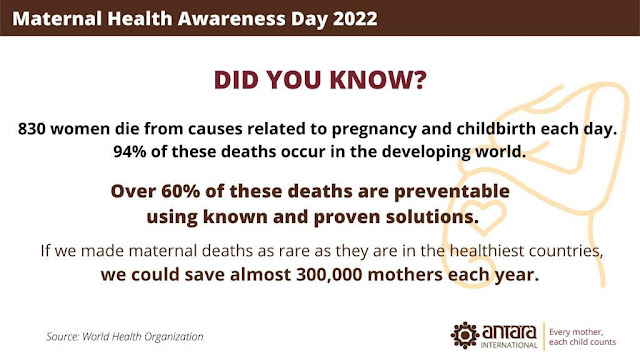
7. Towards a brighter future – progress made towards reducing global maternal mortality
We conclude on a hopeful note – the world has made significant progress towards achieving the #SDG3 target (UN Sustainable Development Goals) to reduce the global maternal mortality ratio to fewer than 70 maternal deaths per 100,000 live births.
However, despite maternal mortality declining, there is still progress to be made, especially in lower income countries. If maternal deaths were as rare as they are in the healthiest countries, we could save nearly 300,000 mothers each year.
